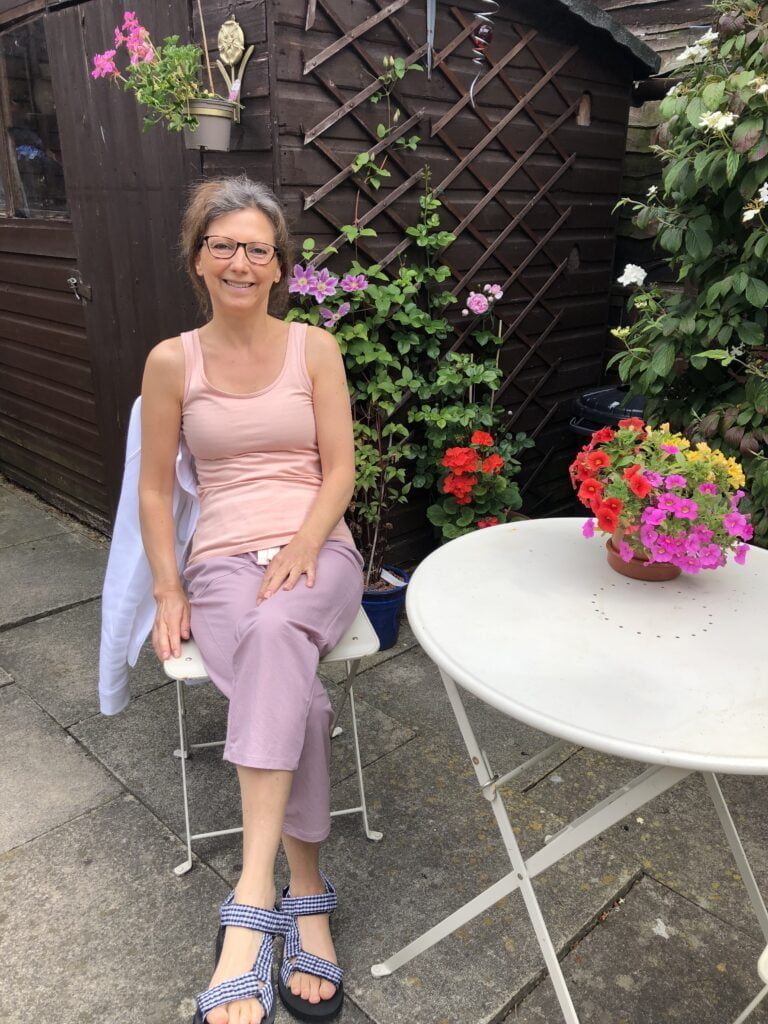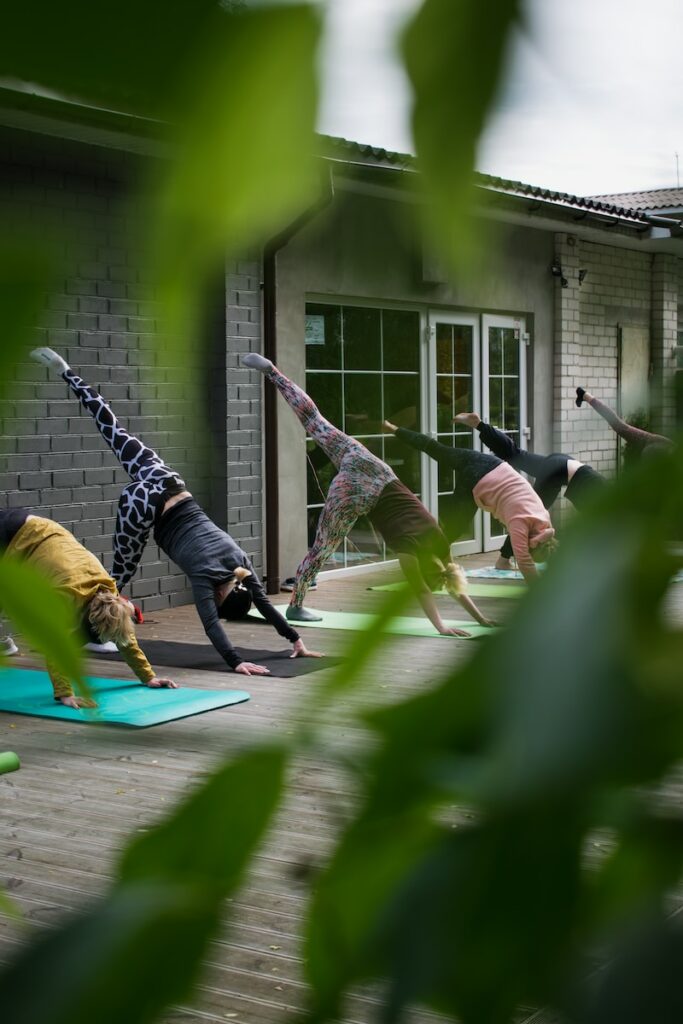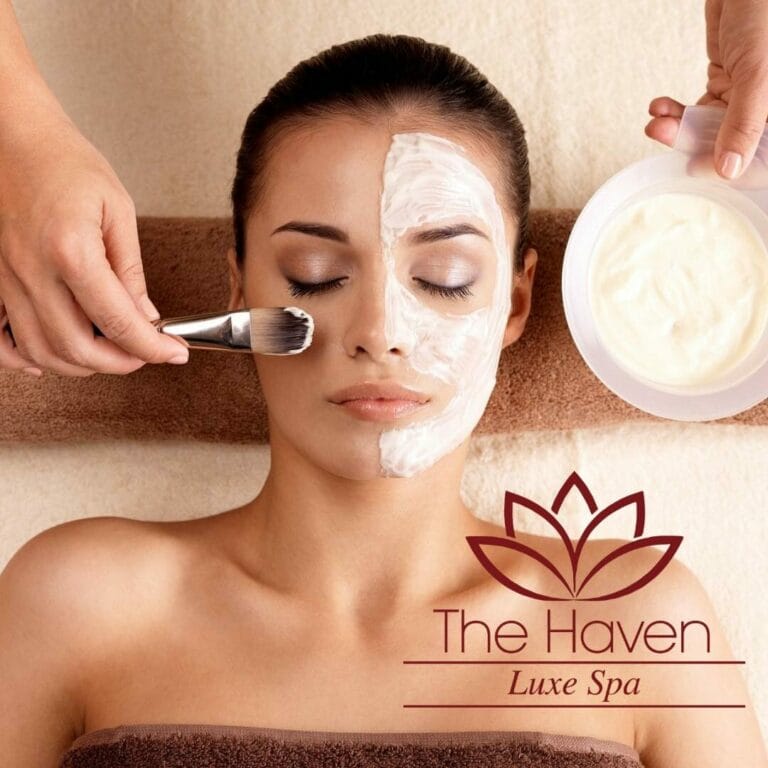Andrea Howard: 8 Tips to Instantly Cool Down & Improve Your Mental Health During Menopause

Want to nurture your wellbeing before the summer starts? Establishing positive habits is often more successful when we take incremental steps and maintain consistency, rather than attempting a complete lifestyle overhaul in one go. Your lifestyle and eating habits hold equal importance to nurturing your wellbeing, and being more mindful during your menopause could change everything for better. Andrea Howard provides priceless insights to instantly cool down and minor dietary adjustments you can start incorporating now – and remember, steady progress is key.

Women don’t have to struggle during menopause
In the heart of every personal change lies a pivotal moment of awakening. For Andrea Howard, that turning point arrived at the crossroads of her health struggles, the forties. When persistent digestive issues met the indifference of the medical field, she took matters into her own hands, setting the stage for a journey that would change not just her life, but potentially the lives of many women around the globe.
When asked what was the turning point when she decided to take control of her health and life? Andrea said:
The turning point for me was in my 40’s and my digestion was getting really bad to the point where I couldn’t digest any food I was eating. I went to the doctor and they didn’t help me to solve it. I started to research digestive health. I was also feeling more anxious, I couldn’t sleep well, my emotions were all over the place and I was having very hot in my body from time to time. It was then that I found out about perimenopause and post menopause.
I was absolutely hooked on researching everything I could learn about this phase of a woman’s life. I wanted to learn more about nutrition and cellular health. I then found a Nutritional Therapy course that had everything I wanted to learn and I jumped in and got qualified. I continued to research digestion, women’s hormone health, cellular regeneration, detoxification and many more things which has enabled me to unravel the mystery around my life long symptoms.
It was then that I made the connection between the mind and body and how it was driving all of my symptoms. I realised that perimenopause and postmenopause is not so much of a hormone problem but a stress problem. There are many kinds of stress and over a woman’s lifetime it can create lots of weaknesses in the body to include digestion, organs and glands.
The emotional system takes over in perimenopause when the ovaries stop working. This is when the weaknesses in the body will show up and can create lots of symptoms associated with menopause. The emotional system is connected to the adrenal glands, thyroid and the pituitary gland. These glands form the endocrine system which is the manufacturing system for hormones, emotions, temperature, mood, blood sugar balance to name a few. When any of these are weakened and not functioning correctly, then you can experience menopausal symptoms and other age related diseases.
There are 4 body systems: the communication system (brain), manufacturing plant (endocrine system), utilisation system (how the body communicates and uses what is produced in the manufacturing plant) and elimination system (detoxification).
One of the biggest contributors to stress levels is emotions. Emotions can get stuck in the body from years of emotional stress and childhood trauma. I connected my childhood trauma and trapped emotions to a lot of my symptoms. I also came to the conclusion that suppressed , trapped emotions and trauma contribute to autoimmune conditions for so many women.
It has been scientifically proven that emotions can get trapped anywhere in the body through the vagus nerve which runs through many organs and glands in the body. It will then keep stress levels high in the body which can go on to create disease in the body.
My symptoms subsided when I ate more nutritious foods, took the right supplements and herbs, connected with my emotions, re discovered who I was, gave myself love and compassion that I never received growing up, used more natural products on my skin, changed my exercise and worked on eliminating all the stress from my body so it could strengthen and heal.”

Dancing with your hormones to cool down during menopause
Andrea refused to be a passive victim to her body’s changes. Equipped with her newfound fascination for the dance of hormones within the female body, she decided to study Nutritional Therapy. This marked her first step towards understanding the root cause of her symptoms, rather than seeking symptomatic relief.
Throughout her research and studies, Andrea uncovered the intriguing connection between the mind and body. She found that the tumultuous journey of menopause is less about hormones and more about stress. Over time, she began to understand that various forms of stress could weaken the body’s systems – digestion, organs, glands, and even the emotional system.
She realized that perimenopause and postmenopause weren’t necessarily medical conditions to be ‘treated’ but natural, albeit challenging, phases in a woman’s life. She began to see them as indicators of the body’s weaknesses that had accumulated over the years.
In the midst of unraveling the complex interplay between emotions, stress, and physical symptoms, Andrea encountered an unanticipated discovery. She realized that her emotional struggles, the trapped emotions from past trauma, were significantly contributing to her symptoms and suspected they could play a role in many autoimmune conditions experienced by women. The revelation was as liberating as it was alarming.
Science confirmed her suspicions – emotions could indeed become lodged anywhere in the body through the vagus nerve, causing persistent stress and potentially contributing to various diseases. Acknowledging this fact, Andrea set out on a path to emotional healing, complementing her nutritional adjustments with a conscious exploration of her emotions and giving herself the love and compassion she had lacked growing up.
With her health steadily improving, she recognized the powerful role her experiences could play in helping others. She felt a calling to help women navigate their journey through menopause with a sense of power, not helplessness. She envisioned equipping them with an understanding of their bodies and the changes they undergo, thereby empowering them to make informed decisions about their health and life.

Her approach is holistic, focusing on more than just physical health. She emphasizes the importance of lifestyle changes, from eliminating processed foods and incorporating nutrient-dense alternatives, to acknowledging the power of adaptogens like Ashwagandha, Schisandra berry, and Reishi mushroom to help the body adapt and release stress.
More importantly, she emphasizes nurturing a positive mindset, a practice she engages in every morning. Through gratitude, connecting with her desires, acknowledging her achievements, and reminding herself to live in the present, she creates a sense of safety and love in her life.
Andrea understands the common misconceptions around menopause, such as the belief that hormone replacement therapy (HRT) is a cure-all, that osteoporosis is solely due to lower hormone levels, or that menopause itself is a disease. Through her work, she actively challenges these myths, underlining the importance of understanding the roots of menopausal symptoms, not merely covering them up with temporary fixes.
While Andrea acknowledges the role of hormone replacement therapy (HRT) in providing relief for extreme symptoms or premature menopause, she stresses that it should not be the go-to solution for all menopausal symptoms. Instead, she urges women to explore underlying causes, which can often be traced to systemic imbalances, stress, nutrient deficiencies, and lifestyle factors.
Contrary to the prevailing belief that menopause inevitably leads to osteoporosis, Andrea asserts that bone loss is a complex process, often linked to thyroid health, nutrient imbalances, and chronic stress and inflammation. By focusing on the root causes and improving overall health, women can better protect their bone health in menopause and beyond.
In her crusade against the stigma around menopause, Andrea finds her solace in nature, grounding her spirit and energizing her body. For her, walking in nature is more than a form of physical exercise. It is a meditative practice that helps her to connect with her inner self, release negative emotions, enhance her creativity, and maintain a state of calm and presence.
Drawing on her personal experiences and professional knowledge, Andrea has a message for all women braving the menopausal waters.
- Embrace a Nutrient-Dense Diet: Eating more fruits, vegetables, and healthy grains such as buckwheat and quinoa, along with superfoods like Moringa and baobob powder. Prioritize nutrient-rich foods and limit processed, high-fat, and high-sugar foods.
- Adopt Adaptogens: To nourish the endocrine system and help the body adapt to stress, consider incorporating adaptogens such as Ashwagandha, Schisandra berry, and Reishi mushroom into your diet. Eliminate processed wheat containing, high fat and high sugary foods, eat more nutrient dense foods to include fruits, vegetables, healthy grains such as buckwheat and quinoa. Include some superfoods such as Moringa powder (high in nutrients), baobob powder (high in potassium). Adaptogens work by adapting to release stress in the body.
- Exercise Regularly: Regular movement, including yoga and walking, helps the body stay strong and resilient, while also alleviating stress.
- Cultivate a Positive Mindset: Start each day by checking in with yourself. Practice gratitude, recognize your achievements, work on changing negative beliefs, and bring yourself back to the present moment when you feel on edge.
- Connect with Your Emotions: Make space for your emotions, even the negative ones. Understanding and healing these emotions can be an important part of your wellness journey. This is not a time to shy away from your emotions, be negative, anxious, or overwhelmed. Instead, recognizing, understanding, and healing these emotions can become an integral part of your journey to wellbeing. Be curious about this new phase of life, explore your changing identity. Have an unshakeable belief in the body’s innate ability to heal when provided with the right conditions.
- Prioritize Self-Love and Compassion: Nourish yourself emotionally by showing yourself the love and compassion you deserve. make sure to give myself love and compassion every day. Recognise the limiting beliefs that are not yours but the result of social conditioning and work on changing the narrative around those every day. Recognise your achievements and how far you have come. Know that no matter how hard life gets you are ok and have the courage and determination to keep moving and keep believing. Allow all of your desires to flow to you at the right time and not to force things in your life. Know that if you are feeling on edge, fearful or doubtful, you are living either in the past or the future. Remind yourself to come back to the present moment and focus on feeling safe and loved right now. Know that all of this is helping you to rediscover who you truly are so I can just be you.
- Spend Time in Nature: Being in nature helps you connect with your true self, release stress, and enhances your creativity.
- Reframe Menopause: There is still a lot of miscommunication around menopause, especially around hormone therapy. There is not enough awareness about the stress response and how this affects menopause symptoms. View menopause as a celebration of your life’s journey rather than a medical condition to fear. It’s a transformative phase in life that can be embraced with knowledge and confidence. Menopause is not a condition to be endured or cured, but a transformative phase to be understood and embraced. Menopause is a celebration, a milestone marking the wisdom and resilience garnered over the years. It is not an end, but rather a new beginning – a testament to the strength of womanhood and a harbinger of the joy and fulfilment yet to come.
Each of these tips, drawn from Andrea’s personal experiences and professional wisdom, provides a roadmap for nurturing both body and mental health through the menopause phase and beyond.
Andrea Howard‘s journey is a testament to the power of self-belief, knowledge, and relentless pursuit of wellness. Her mission, to redefine the narrative of menopause, is an inspiration to women everywhere, a beacon of hope in a society often shrouded in misconceptions. By transforming her own life, she has paved the way for countless women to navigate the challenges of change with dignity, confidence, and a joyous anticipation of all the greatness that lies ahead.
About Andrea Howard
Andrea Howard is a woman who has always felt different from those around her. As a child, she struggled to feel seen and heard, and was often made to feel shame for her mistakes. Despite being labeled “shy,” Andrea had a deep sense that she had something special to offer the world, but struggled to find her way. In her 40s, she experienced health problems that led her to research women’s health and hormones, and she discovered the mind-body connection. This journey helped Andrea to remember who she is and connect with her heart. Now, she teaches women in menopause to remember their own worth and create a life they feel worthy of living. Andrea’s own journey has been marked by a series of challenges, including bullying, divorce, and a near-fatal car accident, but she has always found the strength to keep moving forward. Today, Andrea is inspired by the idea of helping others and finds joy in small things every day. She remains present and connected to her heart, asking herself “what would love do today?” as she works to be intentionally happy.
Andrea is helping Perimenopausal Women recover from physical and emotional burnout, have more energy feel happy 😊 love 💕 themselves and their life
Work with Andrea👇https://www.instagram.com/andrea_jane_howard/
Do you want to share your story and inspire our readers ? Know that every story is paving the way for a brighter, happier future.







